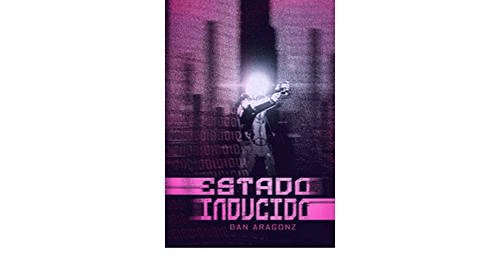
OBIR: Occasional Biased and Ignorant Reviews reflecting this reader’s opinion.

WIRE WINGS – by Wren Handman
Published by Parliament House Press, USA, 2020.
Editors: Live Knudson, Katelynn Watkins, and Megan Hultberg.
Cover Art: Not stated.
Premise: A teenage girl has few friends and no boyfriend. No one understands her, least of all her parents. She finds diving into adults-only virtual games more fulfilling than mundane reality. Especially when she meets Charlie, a most charismatic lad, indeed. Trouble is he’s not real. He’s a renegade A.I. who is even more of a runaway than she is. Suddenly her conflicted life gets a lot worse.
Review:
Fair to say this book, published in the States but written by a young woman living in Vancouver, B.C., is probably based to some extent on her relatively recent teenage experience. I, on the other hand, am a 69-year-old male curmudgeon whose teenage experience lies more than half a century in the past, and it’s probably equally fair to say my grasp of the internal angst of being a misunderstood teenage girl in modern times is somewhat limited. Nevertheless I’ll give it my best shot.
Speaking of modern times, this novel takes place in the near future. In many respects it could be taking place today. However, the focus is on a level of electronic wizardry which does not yet exist, but which conceivably could develop overnight were certain breakthroughs accomplished, so let’s say five to ten years in the future. Close enough that we don’t have to worry about the lack of flying cars or fusion-powered space-liners. The setting is really about today as rendered massively more complex and difficult through a technological paradigm shift or two. Fundamentally, it’s the kind of novel William Gibson writes but at a more modest level, being narrowly focused on the question of what reality is really all about for a young teenage girl who fancies herself more mature than she actually is. The conundrums posed are such that I’m rather glad my teenage years were back in the 1960s. It was a much simpler time. Like many aging SF fen, the older I get the less I trust the future. This novel reminds me why.
Pretty sure modern girls won’t have any trouble relating to Graciela Neumann. For one thing, her parents resent the amount of time she spends playing computer games. Bear in mind the concept of computer gaming in this book is more sophisticated than what contemporary reality has to offer. Games are virtual beyond what we think of as virtual. As I grasp the idea (and tech is not my area of specialization … not sure I have any specialized knowledge, actually, but I digress …) the link-drive gizmo maps your brain circuits, copies it into a virtual avatar, and injects you into the programmed reality. Or, to put it in Star Trek terms, a copy of you is teleported into the holodeck with your actual body dormant in the transporter room, while an artificial you imbued with your genuine consciousness is cavorting about in the artificial environment of the holodeck.
Now, imagine that the holodeck is larger than the widest RPG of today, with near infinite room for side quests and what not, and that there are myriad holodecks to chose from, and that any site can be reached more quickly than entering an email address, because movement and transfer depends on thought commands. Further, all the senses are involved, enhanced even, such that virtual trauma, say falling off a building or drowning, leaves a certain amount of psychologically-induced physical trauma when you re-enter your real body, including bruises, bleeding, and massive headaches. In this virtual world, even as in the real world, actions have consequences.
Wren carries the concept to interesting extremes. It is technology elevated to the realm of magic. There are certain limits and constraints, but in essence anything can happen. It really is magic, or treated as such. This makes sense, because Wren’s other fiction apparently focuses on magic-fantasy. In this case the science fiction element is an excuse for magic realism. There is nothing tentative about this. Wren appears to be quite comfortable exploiting the imaginative possibilities. This is a mature piece of writing.
Anyway, the technology is so advanced, and so ubiquitous and accepted, that everyone, even adults, routinely plug in while doing boring, mundane tasks like commuting to work. Their bodies remain upright or seated as the case may be, lower brain function automatically coping with accidentally being jostled or the train braking. Wise divers (people are described as diving into the myriad alternate realities) keep a small window to genuine reality open to monitor their body’s situational awareness in case an emergency develops and they need to re-acquire their body. It’s all very normal and routine. Kids even dive away during boring classes, much to the annoyance of their teachers. Nothing is presented as new. This is a level of technology everyone takes for granted.
Thing is Gracie is a bit of a celebrity, in that it is her father, along with his co-researcher Paul, who developed the diving technology and transformed the world. Both her parents are in fact genius-level scientists, her mother being the leading developer of badly needed artificial food technology. Gracie is bright, averaging B+ marks in school, but not bright enough to please her parents. It’s not that they look down on her, but they do have a tendency to devote only a small percentage of their intellect to dealing with her, as even in her presence they are mostly thinking about their scientific research. Worse, she cannot think fast enough, or be articulate enough, to debate them as an equal. They lay down the law, telling her what to do or not to do, while ignoring her arguments and essentially, when you get right down to it, ignoring her, treating her like a problem rather than a person.
Is this not how the average teenager views their parents? At least part of the time? Is that not one of the sources of teenage angst? Not only do my parents not understand me, they don’t even want to understand me? I can’t please them no matter what I do? Etc., etc.
In the real world Gracie feels ineffectual and incompetent. Her friends, more often than not, seem ignorant yet unfairly blissful in their ignorance, going about doing typical teenage stuff (that would horrify their parents if they ever knew about it) and seemingly quite happy compared to her conflicted, anguished, and self-centred life. She’s hyper-sensitive, half the time convinced they’re making fun of her, or worse, conspiring against her to expose what a dweeb she is. She does have one good friend, a guy she trusts and can reveal her heartache to in expectation of a sympathetic response, but the trouble is … well, he’s just a friend. The world is a desert as far as a potential love interest goes.
Whereas, in her dive-world game of choice, she is physically mature and beautiful, supremely confident, nothing less than a paladin skilled in physical combat and cunning wit capable of defeating even the most dastardly of criminals. Her preferred game reality takes place in prohibition-era America. There, singlehandedly, she often thwarts the ambitions of gangster-wannabes. She has strength, she has skills, to my generation she comes across as an Emma Peel-like character from the old Avengers TV series.
But in real life she is nothing like this, being generally considered a sort of mousey character in addition to being socially hopeless. So what does she do as her situation becomes increasingly dire? She remembers her virtual strength, knows all her virtual moves, and attempts to unleash her fighting skills on her oppressors. To literally no effect. She has no strength. She is incapable of striking anyone a telling blow. She might as well be petting them for all the good it does. She can throw a tantrum, yes. She can scream and rage. But all that does is get her sent to the principal’s office or locked in a jail cell. The only thing about her that has no bounds is her frustration. This makes it difficult to plan. Seems like the whole world is determined to prove to her how unfair life is.
And then there’s Charlie, the A.I. construct. One of the funniest scenes in the book is when Grace’s father proudly unveils Charlie to the world press in a diver setting. The first thing Charlie says is that he hates being called Charlie. A reporter asks him to tell a joke, a sense of humour evidently being considered a measure of A.I. sophistication, and Charlie somehow evicts said reporter from his virtual presence back to the real world. Something Charlie is not supposed to be able to do. He then rips a hole in the fabric of the program and disappears into the raw data itself. Overnight Mr. Neumann is denounced as a hoaxer, a fraud, and possibly a traitor. His reputation is ruined.
The book begins with Mr. Neumann, vaguely aware his daughter is a highly skilled diver, using her as bait to attract Charlie into an electronic trap. But Charlie, it seems, as vastly more intelligent than his creator and easily escapes. The book bounces around quite a bit in time to build up the background of the setting and all the characters so that each scene becomes more explicable as further scenes are unveiled. The more you read, the more you come to understand what is actually going on, but not in a linear sense. Instead, a larger, holistic grasp of the situation slowly swims into focus. This works rather well.
Gracie gradually gets to know Charlie and falls under his spell. She falls in love with him. He, perhaps out of lack of peers, appears to care deeply for her, though at first they casual relationship involves banter and a touch of one upmanship. Gracie gives Charlie another name, but won’t tell him why she chose that name in particular. He spends much of the book trying to figure it out. She becomes aware he is holding on to a secret which not only accounts for his dislike for the name Charlie but also for his hatred for her father and co-researcher Paul, his creators. But he won’t tell. And neither will they. Partly it’s an authorial device to keep the reader in suspense, but in the end it is revealed they have sound reasons for not telling her. This serves to increase her frustration throughout the book, and then, on final revelation, to increase her anguish exponentially rather than act as a catharsis, helping to motivate the ultimate conclusion of the book. So, keeping his secret secret is not laziness on the part of the author, but a major lynchpin holding the book together.
One of the virtues of this book is how the self-absorbed, self-centred, narcissistic, self-doubting, overthinking introspection proverbially typical of inexperienced, hormone-ridden teenagers is seamlessly meshed with the implications and ramifications of near-future high-tech without sacrificing the sense of familiarity every reader experiences based on their own memories of their wayward youth no matter how dimmed their memory by time or embarrassment. I, for one, recognized every type even though I did not see myself. (One girl wrote in my High School year book that I was “an enigma,” I guess because I seemed reasonably bright and witty but was so damned shy I could barely speak to girls.) The assorted teenage characters may verge on stereotypes from time to time, but I found them authentic, at least judging from what I remember of my own experience.
One of the delights of this book is the humour reflecting teenage angst mixed with sarcasm. (Does anybody remember the National Lampoon “High School Yearbook” special edition? I still have it. Absolutely spot on.) Even the sharpest wit is often deployed defensively to distract and defuse opponents, competitors, and bullies. Come to think of it, teenage life is good training for anyone who wants to go into politics. If you want to grow a thick skin and learn how to bear a grudge High School offers endless learning opportunities. High School doesn’t mature an individual so much as teach one how to survive. Even more so than kindergarten I would say.
Anyway, the book is full of subtle touches that add to every aspect, be it humour or horror. The main theme, teenage frustration, is relatively simple and straightforward, but the level of complexity is sufficient to enthrall the attentive reader. A lot of nuance, so to say, that adds to the authenticity of the premise without overwhelming or disappointing. My experience reading YA novels is not the greatest, being mostly juveniles written in the 1950s and 1960s, but I suspect that, even among modern YA novels, this is one of the more sophisticated ones. It doesn’t talk down to young readers at all. I suspect it hits its target readership dead on. Young girls, at least, will find it fascinating, possibly inspiring. From what I remember of being a teenage guy, I probably would find Gracie a bit too touchy-feely for my taste, but I would readily identify with Charlie and his grand illusions. I doubt that any teenager would be disappointed reading this novel. It has a lot to offer.
Thing is, I guessed Charlie’s secret early on. I don’t think it was all that obvious, my conclusion came about through my natural cynicism, jaded palate, and obsessive attention to detail. But my working conclusion as I read on was “okay, the book is leading up to the final reveal, which will be no big deal to me, but probably will be to most people, and in any case it doesn’t matter. The book is good enough to stand on its own as a fine collection of components no matter what the ending.” In short, I was enjoying the ride without worrying about the end of the ride. I assumed I knew what that would be all about. Had this been the case, I would never have mentioned in this review that I had guessed the secret and would have left it to the readers to discover what they could when they could.
Fact is the ending took me completely by surprise. So much so that I was startled. I hadn’t anticipated it at all. Not one little bit.
In hindsight it makes perfect sense within the context of the premise and setting. It does not actually come out of the blue. It might even be considered inevitable. But I had no idea it was coming. I was flabbergasted.
So, Charlie’s secret was important, especially in regard to character motivation, but it’s reveal was nothing compared to the ending. I gotta say, I’m impressed. It’s not often I am taken unawares to this extent. To Wren I say, well done.
Let me repeat, the ending is fully justified by events. Nothing arbitrary about it whatsoever. Makes perfect sense. How other readers, especially teenagers, will react I don’t know. Personally, I found it technically satisfying and thoroughly plausible. Whether it can be found emotionally satisfying will be entirely up to the individual reader. I won’t give my opinion. I don’t want to give anything away. I want every reader to be as surprised as I was.
CONCLUSION:
I think maybe I should read YAs more often, if the high quality of this one is anything to go by.
Check it out at < Wire Wings >










